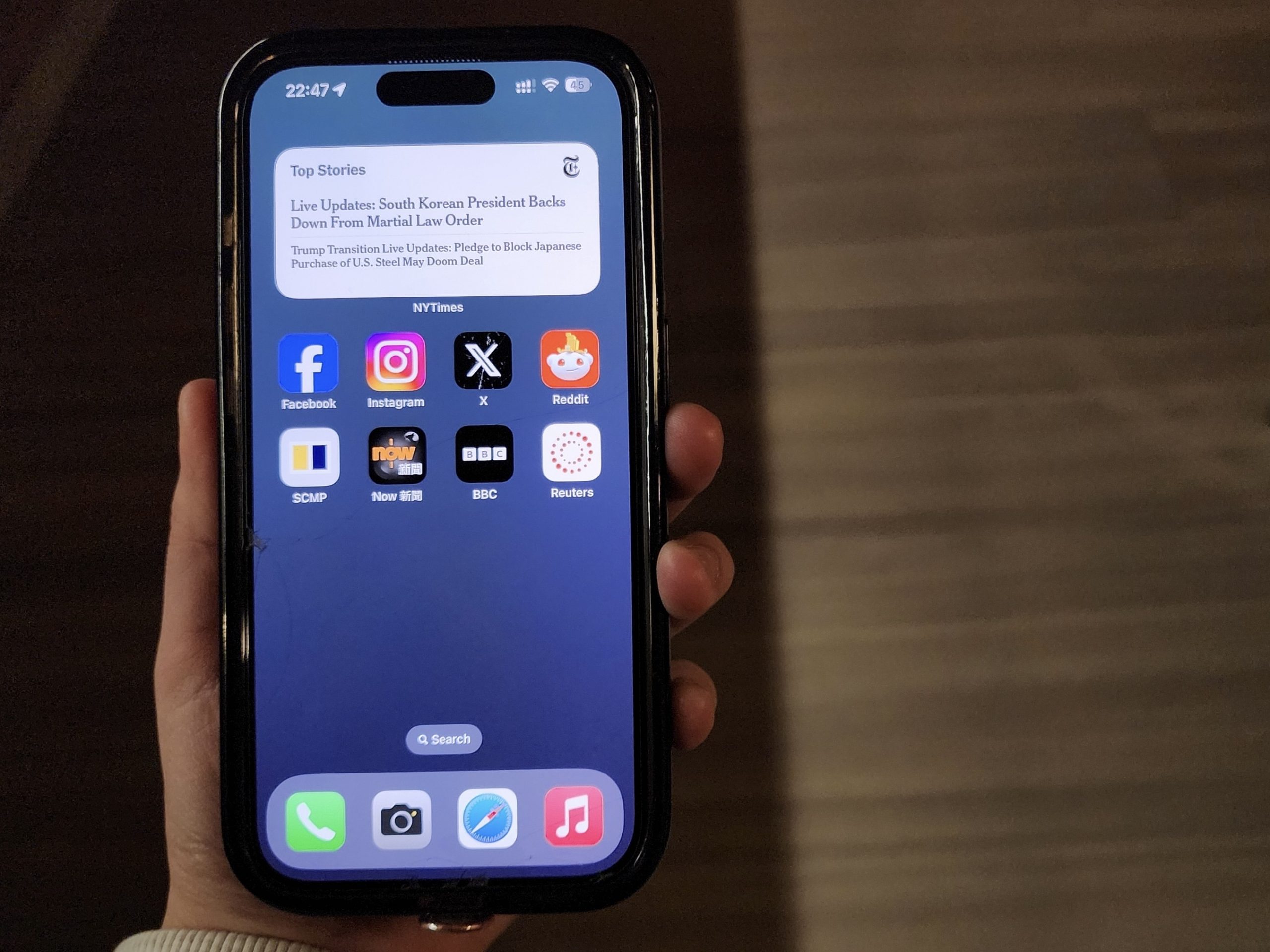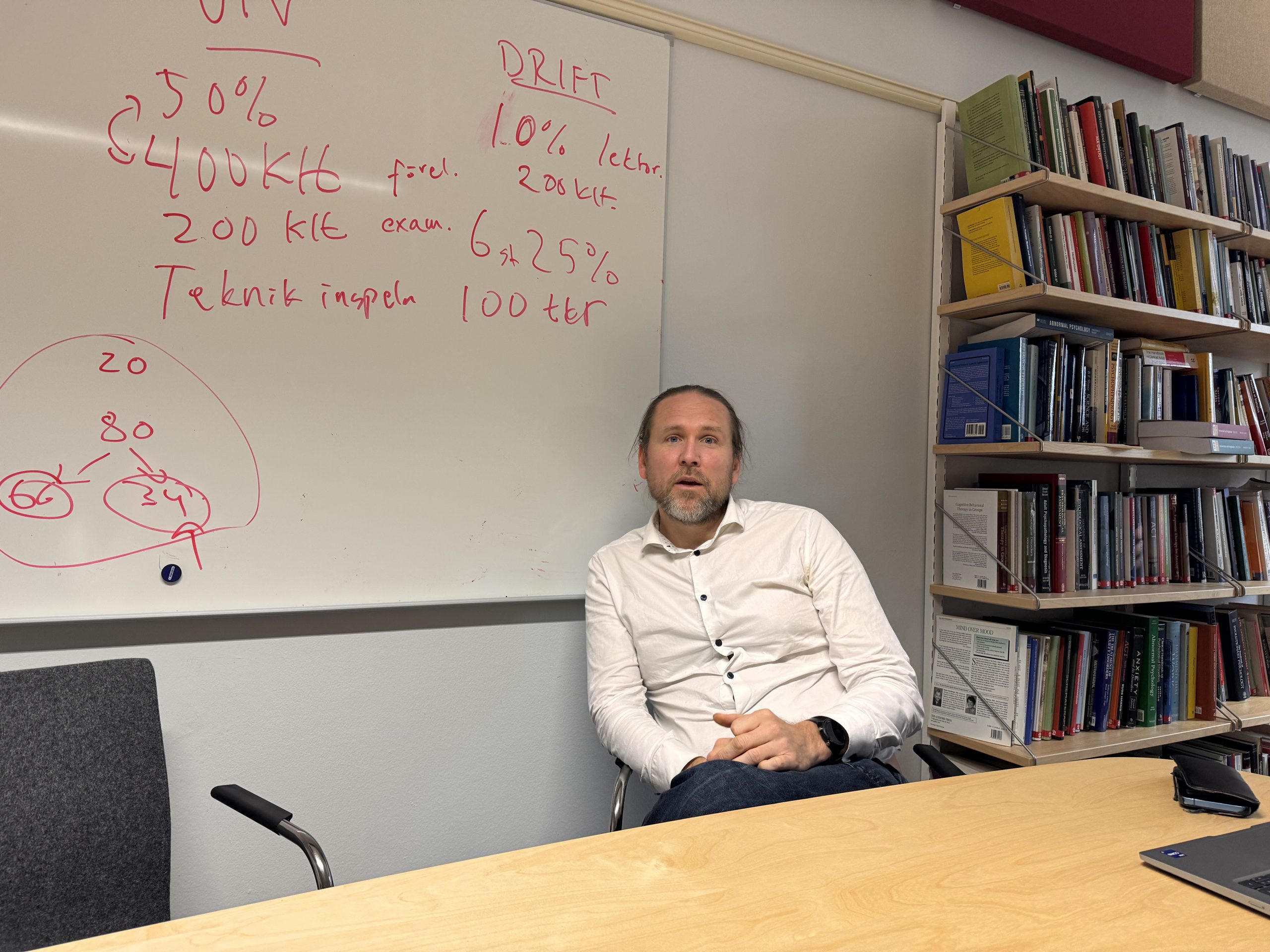
Conor James Walker, 22, a university student majoring in history and politics, gets his daily news from websites such as the BBC and Al Jazeera. He said the current amount of information online is detrimental to his mental health.
“A lot of information online, and it doesn’t matter whether it’s true or not, is mostly quite depressing subjects,” said Walker. “Fear of war, disease, disasters, and how politics rarely has a good story that comes out of it, no matter what country you look at,” he said.
“It can take quite a mental toll on any individual,” said Walker.
Walker added that he is less likely to read social media news unless it appears on his social media feed.
“There’s the thing with social media,” said Walker, “which is anything can be said by anyone, and it turns out there’s a good chance it may not be true.”
According to a report from the UK Office of Communications (Ofcom), the country’s telecommunications watchdog, 82% of those aged 16-24 years relied on social media for news, while only 28% of those aged 55 years do so.
The report added that of all Britons aged 16 or above, 52% now consider social media their primary news source, whereas 51% still watch news on television via main broadcasters. This means online media has overtaken television as the biggest source of news.
The American Psychological Association describes that constant feed of negative news as “media saturation overload.” Online platforms, especially social media, have algorithms that feed users more of the same to drive views and engagement.
Bryan Mclaughlin, an associate professor in the College of Media and Communication at Texas Tech University, said that social media access leads to people being constantly caught up on the news.
“If you don't have social media, even with cable news and stuff, you can't always be watching, or at least if you're trying to go about your day,” said Mclaughlin. “But with social media on your phone, just the ability to kind of constantly plug in and have it distract you constantly kind of pull your mind there, really kind of makes it provide more potential for people to kind of have these negative mental health effects.”
Martin Wolgast, a psychology professor at Lund University, said stress brought on by the news is not a new problem. Still, media saturation overload is a sped-up product with detrimental effects. Videos, including news clips, on social media are getting shorter and shorter, and people get overwhelmed when they keep watching and scrolling.

“The span that we devote our attention to something is diminishing, so there is a faster and faster turnover time on information and what content we allocate our attention to,” said Wolgast.
“Pictures and videos have a stronger emotional impact than texts. If all news were just written text, they would have less capacity to evoke strong emotions than watching a video clip of the same event,” he added.
According to a June report from the Reuters Institute of the University of Oxford, more people are shifting to video applications such as YouTube, TikTok, and Instagram for digital news content, while social media creators and influencers are getting more attention than journalists and traditional news organisations.
The report stated that social media allows creators to upload content to which traditional news media might have restricted access to report on-site, especially regarding coverage of war and conflict where traditional reporters may not be able to access certain areas. Traditional news media also have editorial policies limiting what they can publish.
Meanwhile, social media creators and influencers can instantly film videos and upload them to social media, where everyone can see them without any content regulation.
Wolgast said social media is designed to promote content that drives negative emotions, which can cause viewers to experience mental strain.
“Content with negative emotionality spreads faster, such as stuff related to fear or hate or conflict, because of social media algorithms. People click more on them and get more attention than other types of content,” said Wolgast.

Alison Holman, Professor of Psychological Science at the University of California, Irvine, said that consuming excessive news information regarding collective traumas such as mass shootings, terrorist attacks, and major disasters can result in post-traumatic stress symptoms.
Holman added that graphic imagery can be an “emotional amplifier” of traumatic events, and viewers may get post-traumatic distress, as it induces our brain to process fears and threats.
“There was a mass shooting in a mosque in New Zealand where many dozens of people were slaughtered by a mass shooter, who live-streamed the imagery of violence on social media,” said Holman. “It took so much time for social media platforms to take it down that it spread around the world, and people saw that, and that was like horrific graphic violence, And that kind of thing can be extremely distressing to people.”
Holman added that social media content should be carefully edited so that it does not cause excessive distress to viewers.
Walker said he had taken numerous breaks from social media and put the focus back on himself due to the news-induced stress.
“Sometimes you need to take that space away, which is quite alarming considering this is the world we live in,” said Walker.
Mclaughlin said that staying away from the news or attempts of “dopamine detox” may remedy news-related stress, but they will not solve the underlying problem of media overload.
“If you have appalling levels of problematic news consumption or news addiction, that is probably going to lead to some problems, and you probably need to work on your relationship with it,” said Mclaughlin. “But that doesn't necessarily mean you must cut it out completely.”
“The things that concern you about the news are real and they are real-world things, so there is reason to pay attention, and there might be reason to be stressed, and running away from that doesn't necessarily solve the problem,” said Mclaughlin.
Mclaughlin added that it is more important to understand our relationship with the news and develop a better awareness of our news consumption habits to balance the amount of news we consume and our mental well-being.
Some are not affected by media overload and are optimistic about the amount of information available online.
Gordon Davie, 75, a retired occupational therapist, said that online media does not impact his mental stress and added that social media is an effective way of obtaining news information.
“On social media, I see information from France, Australia, the United States, Canada, that keeps me informed of the situations in those countries,” said Davie. “To me, that is very important.”
He said the large amount of online information can encourage debates and discussions.
“It is interesting to hear other people’s views, even when I strongly disagree,” said Davie. “You can challenge false ideas, such as ideas about discrimination and hostility to people that are different.”
《The Young Reporter》
The Young Reporter (TYR) started as a newspaper in 1969. Today, it is published across multiple media platforms and updated constantly to bring the latest news and analyses to its readers.

The Suicide Rate among Hong Kong Students Under Academic Pressure Hit an Eight-year High

Knowledge meets cocktails: How academic bars in Shenzhen blend intellectual pursuits with social drinking




Comments